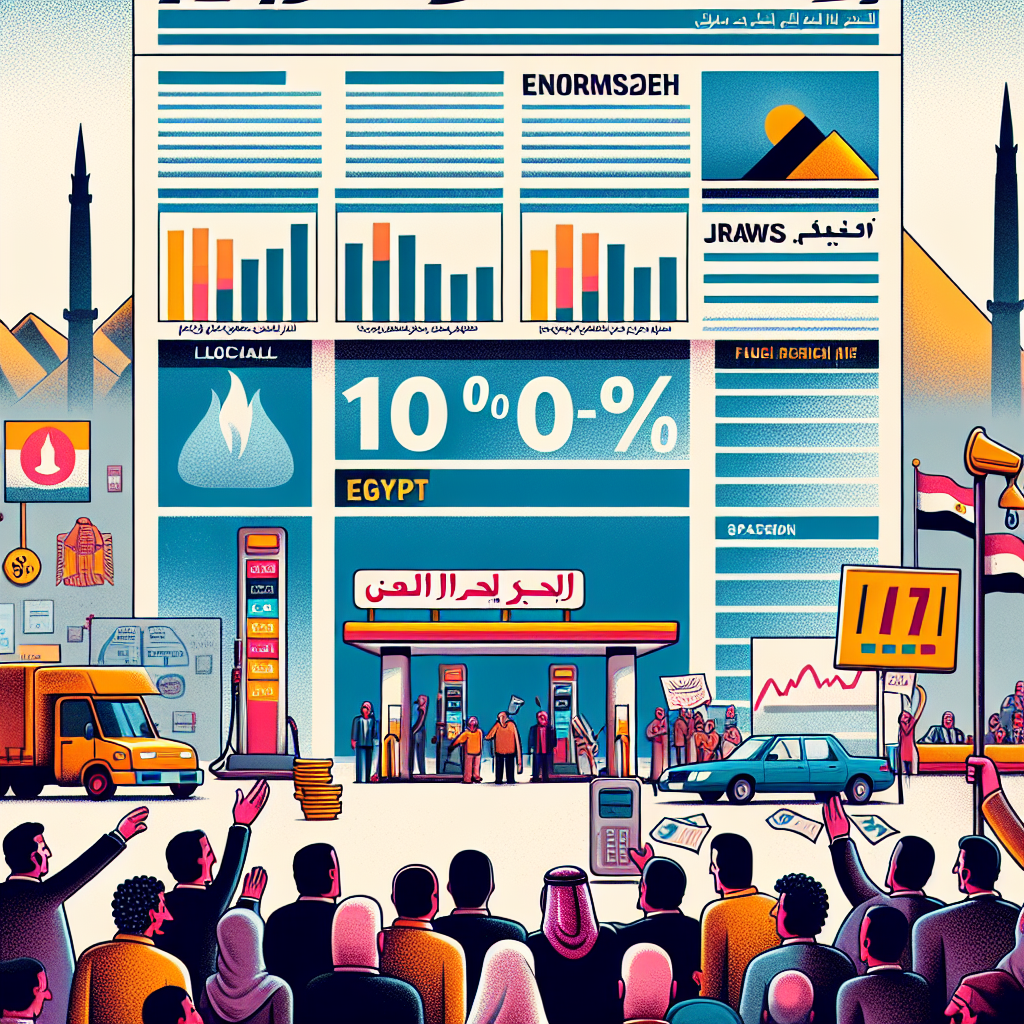Egypt Implements 10% to 17% Fuel Price Hike
Egypt Implements 10% to 17% Fuel Price Hike

Overview of the Price Increase
In a significant economic move, Egypt has announced a fuel price hike ranging from 10% to 17%. This decision is part of the government’s broader strategy to address fiscal challenges and stabilize the national economy.
Reasons Behind the Hike
The fuel price increase is driven by several key factors:
- Economic Pressures: Rising global oil prices and inflationary pressures have necessitated adjustments in domestic fuel pricing.
- Subsidy Reductions: The government is gradually reducing fuel subsidies to alleviate the financial burden on the state budget.
- IMF Agreements: Compliance with International Monetary Fund (IMF) agreements, which often include subsidy cuts as part of economic reform programs.
Impact on the Population
The fuel price hike is expected to have widespread effects on the Egyptian populace:
- Increased Living Costs: Higher fuel prices are likely to lead to increased transportation and goods costs, affecting household budgets.
- Public Reaction: The decision may face public scrutiny and potential protests, as citizens adjust to the new economic reality.
- Sectoral Impacts: Industries reliant on fuel, such as transportation and manufacturing, may experience increased operational costs.
Government’s Mitigation Measures
To cushion the impact of the price hike, the Egyptian government is implementing several measures:
- Social Support Programs: Expanding social safety nets to support low-income families affected by rising costs.
- Economic Reforms: Continuing broader economic reforms aimed at boosting growth and creating jobs.
- Public Communication: Engaging in public communication campaigns to explain the necessity of the price adjustments.
Conclusion
Egypt’s decision to increase fuel prices by 10% to 17% is a strategic move to address economic challenges and reduce fiscal deficits. While it poses immediate challenges for citizens and industries, the government is taking steps to mitigate the impact through social support and economic reforms. The success of these measures will be crucial in maintaining public confidence and ensuring economic stability.


















